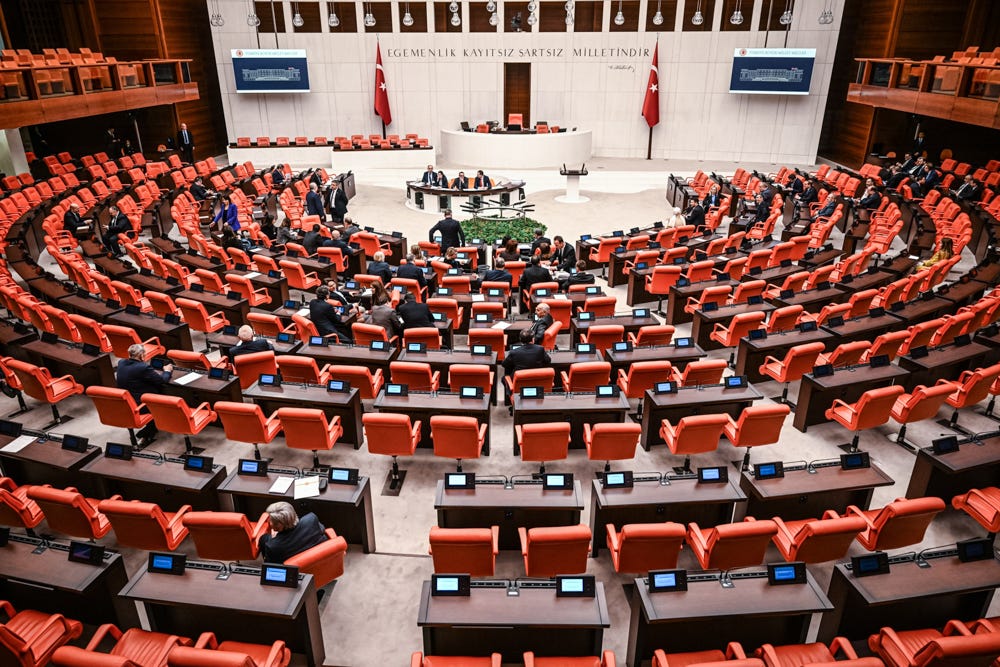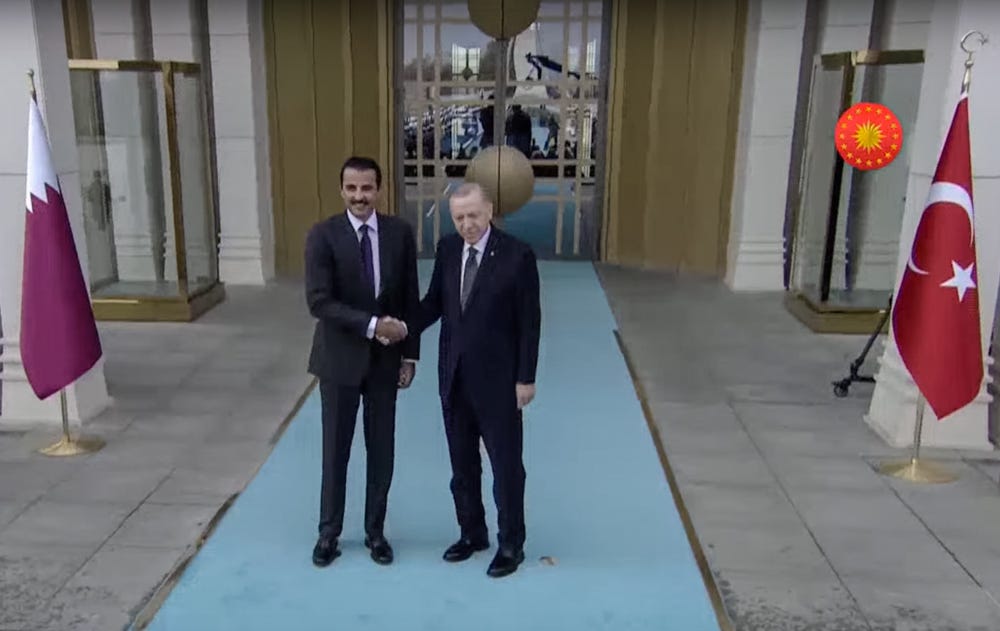As Destiny’s Child put it: “I don't think you're ready for this Bahçeli.” Turkey’s chief ultranationalist is not just talking about brotherly love, he’s planting trees in the name of it.
The shift has drawn talk of AKP-MHP friction and at least one threat to rename one Devlet Bahçeli Square, but the man is just cruising. More below.
In this week’s recap:
Influence agent bill retracted
Spotlight on Turkey after Qatar stalled negotiations
Trustee protests continue
Turkey-Greece normalization proceeds
Erdoğan works to revitalize EU ties
Turkey exits EU culture fund
Domestic and diplomatic wraps
Disko kebap gets a remake
Also from us this week:
Dénes Jäger on how Turkey-Armenia normalization depends on Baku
Damla Uğantaş interviews Özlem Zıngıl on the judicial impunity (Turkish only)

‘Foreign influence agents’ might sound like the people who sell fake followers on social media, but in reality, they are the target of a draconian law proposal in Turkey that keeps coming back to life like monsters in horror movies or Donald Trump in US elections.
Slated for debate on Wednesday, the ‘foreign agents’ draft law was abruptly withdrawn in the afternoon for revisions following pressure from opposition lawmakers. It was the second time this year that the proposal was introduced and retracted.
An AKP official told Deutsche Welle they would gather objections from opposition lawmakers next week, and “if the opposition does not propose a solution, this article will pass exactly the same” as it was when introduced this week.
In separate statements Wednesday, AKP Parliamentary Group Chair Abdullah Güler said the bill had not been completely withdrawn, and would return following consultations with the opposition.
What’s in the draft law: For details, read this outline by Expression Interrupted. The short version is that proposed article 339/A penalizes crimes against Turkey’s national security and political interests conducted “in alignment with the strategic interests or instructions of a foreign state or organization.”
The proposal replicates similar laws in Russia and Georgia, which have essentially criminalized foreign-funded organizations. Rights groups stated the broad language of Turkey’s version could implicate anyone from academics to journalists as well as employees of foreign-owned companies or, perhaps, investment rating agencies.
What to expect: Based on AKP statements, Veysel Ok, co-director of MLSA, said it’s very likely the proposal will return to parliamentary debate in the near term. Though the articles may need to run through a spell check or Grammarly, first.
“There are not only legal problems with the proposal, but also many logical problems and Turkish language problems in the articles … so you cannot understand what they want to achieve,” Ok told Turkey recap. “It’s not clear … and it could impact both foreign-linked journalists and businesses.”
The Parliament’s Justice Commission debated the proposal late last month, where a legal counsel for Turkey’s intelligence agency (MİT) argued the ‘foreign agents’ bill would strengthen national security capacities.
Ok underlined Turkey has more than 10 existing laws addressing espionage. When asked what one more law would do for authorities, he responded: “That’s the biggest problem. No one can explain why we need another article. Who is it for?”
He continued, saying that in the populist rhetoric of contemporary politics, such bills allow for wider legal avenues to charge government opponents as ‘foreign spies’. This incentivizes self-censorship as the label can subject individuals to “digital and physical attacks.”
“With that label, a person cannot work or even walk outside because to be called a ‘spy’ in Turkey is a psychological attack,” Ok said.
– Diego Cupolo

Hamass Migration: Spotlight on Turkey after Qatar stalled negotiations
Keep reading with a 7-day free trial
Subscribe to Turkey recap to keep reading this post and get 7 days of free access to the full post archives.



